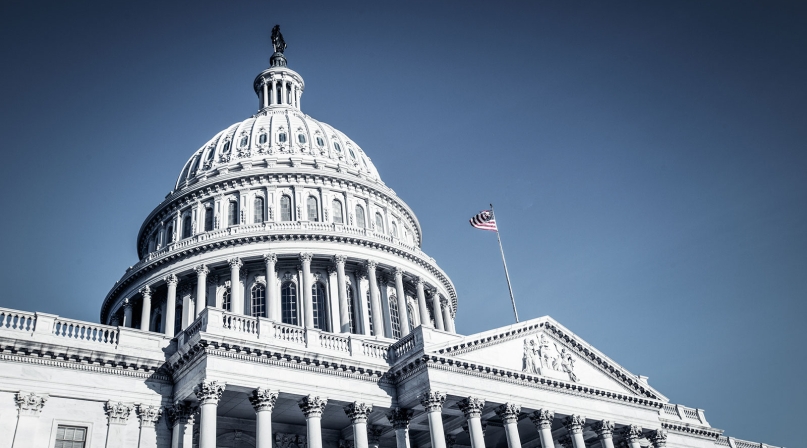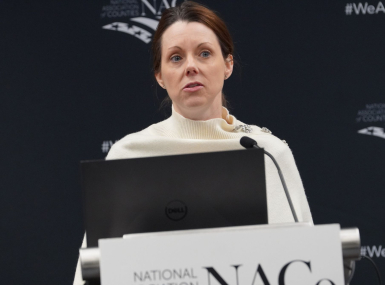Senate Agriculture Committee releases reconciliation budget text; Contains changes to SNAP
Author

Julia Cortina

Kevin Moore
Upcoming Events
Related News

Key Takeaways
UPDATE: On July 1, the U.S. Senate passed its version of the reconciliation bill and added a new provision to the benefit cost shift. Generally, implementation will begin in FY 2028. However, if the payment error rate of a state in FY 2025 multiplied by 1.5 is equal to or above 20 percent, the implementation date will be FY 2029. If a state meets these criteria in FY 2026, implementation is pushed to FY 2030. Ultimately, states with the highest error rates will have delayed implementation.
UPDATE: On June 25, the Senate Agriculture Committee released revised text with a new version of the benefit cost share provision. Under this revision, states may use either their FY 2025 or FY 2026 payment error rate to determine their required match for FY 2028. For FY 2029 and beyond, the match is based on the payment error rate from three fiscal years prior.
On June 11, the U.S. Senate Agriculture Committee released its version of the One Big Beautiful Bill Act (H.R. 1), also known as the budget reconciliation package. The text includes several proposed revisions to the Supplemental Nutrition Assistance Program (SNAP). As the largest federal nutrition program, SNAP provides monthly benefits to nearly 42 million households, including children, the elderly and those with disabilities. Counties are responsible for administering SNAP in ten states (California, Colorado, Minnesota, New Jersey, New York, North Carolina, North Dakota, Ohio, Virginia and Wisconsin), representing 34.3 percent of total participants, or 14.6 million people. The Senate text differs from the House-passed H.R. 1 in several ways:
- Both the Senate and House bills reduce the federal portion of administrative costs from 50 percent to 25 percent, and therefore increases the state and county share of administrative costs to 75 percent. However, the Senate bill pushes back implementation to FY 2027, compared with FY 2026 under the House bill.
- In states where counties administer SNAP, administrative costs may be shared with the state. Counties cover a portion of non-federal administrative costs in California, Colorado, Minnesota, Ohio, Virginia and Wisconsin. Counties are responsible for the entire non-federal cost to administer SNAP in New Jersey, New York and North Carolina. Only in North Dakota are these costs fully covered by the state.
- Rather than requiring states to contribute between 5 to 25 percent of benefits based on their payment error rates, the Senate version exempts states with error rates below 6 percent from contributing. States with higher error rates would gradually assume a cost share up to 15 percent. Implementation would begin in FY 2028.
- Unlike H.R.1, which eliminates the payment error rate tolerance threshold by reducing it from $57 to $0, the Senate proposal leaves this threshold unchanged.
- Both H.R. 1 and the Senate Agriculture Committee text would expand work requirements for Able-Bodied Adults Without Dependents (ABAWDs), raising the age range from 18–54 to 18–64. Under the Senate bill, ABAWD work requirements would also be expanded to those with children over age 9, compared to those with dependents over age 6 under H.R. 1.
On May 21, NACo sent a letter to congressional leadership expressing concern over the proposed changes regarding SNAP to shift benefit and administrative costs through to counties and states. We remain concerned that proposed cost shifts will strain already limited county budgets and damage the delivery of critical nutrition assistance to vulnerable populations.
For further analysis, see our regularly updated Federal Reforms to the Supplemental Nutrition Assistance Program (SNAP): What Counties Should Know.
Resource
H.R. 1 and the Supplemental Nutrition Assistance Program (SNAP): What Counties Should Know

Related News

National Association of Counties Launches Initiative to Strengthen County Human Services Systems
The National Association of Counties (NACo) announces the launch of the Transforming Human Services Initiative, a new effort to help counties modernize benefits administration, integrate service delivery systems and strengthen county capacity to fulfill our responsibility as America’s safety net for children and families.

Congress seeking ‘common-sense solutions’ to unmet mental health needs
Rep. Andrea Salinas (D-Ore.): “Right now, it is too difficult to access providers … and get mental health care in a facility that is the right size and also the appropriate acuity level to meet patients’ needs.”

Federal-level child welfare priorities center on supporting foster youth, families
Child welfare experts outlined current priorities at the federal level, including better supporting foster care youth who age out of the system and recruiting more foster parents, at NACo’s Human Services and Education Policy Steering Committee meeting.